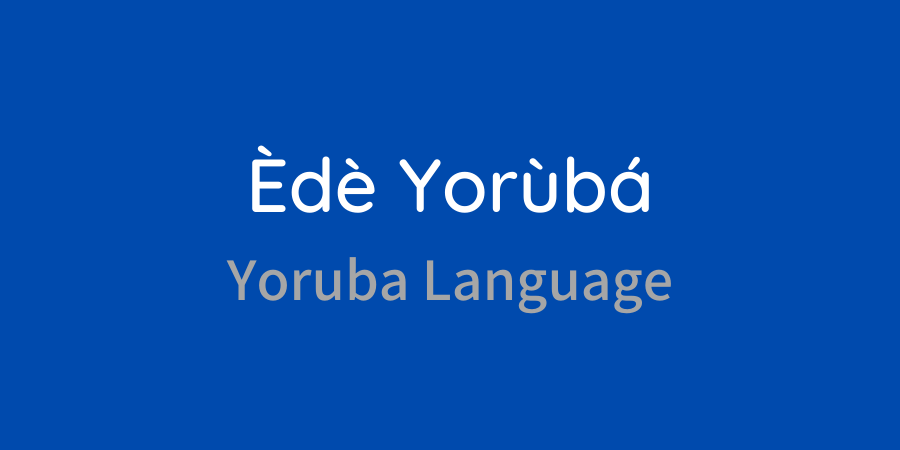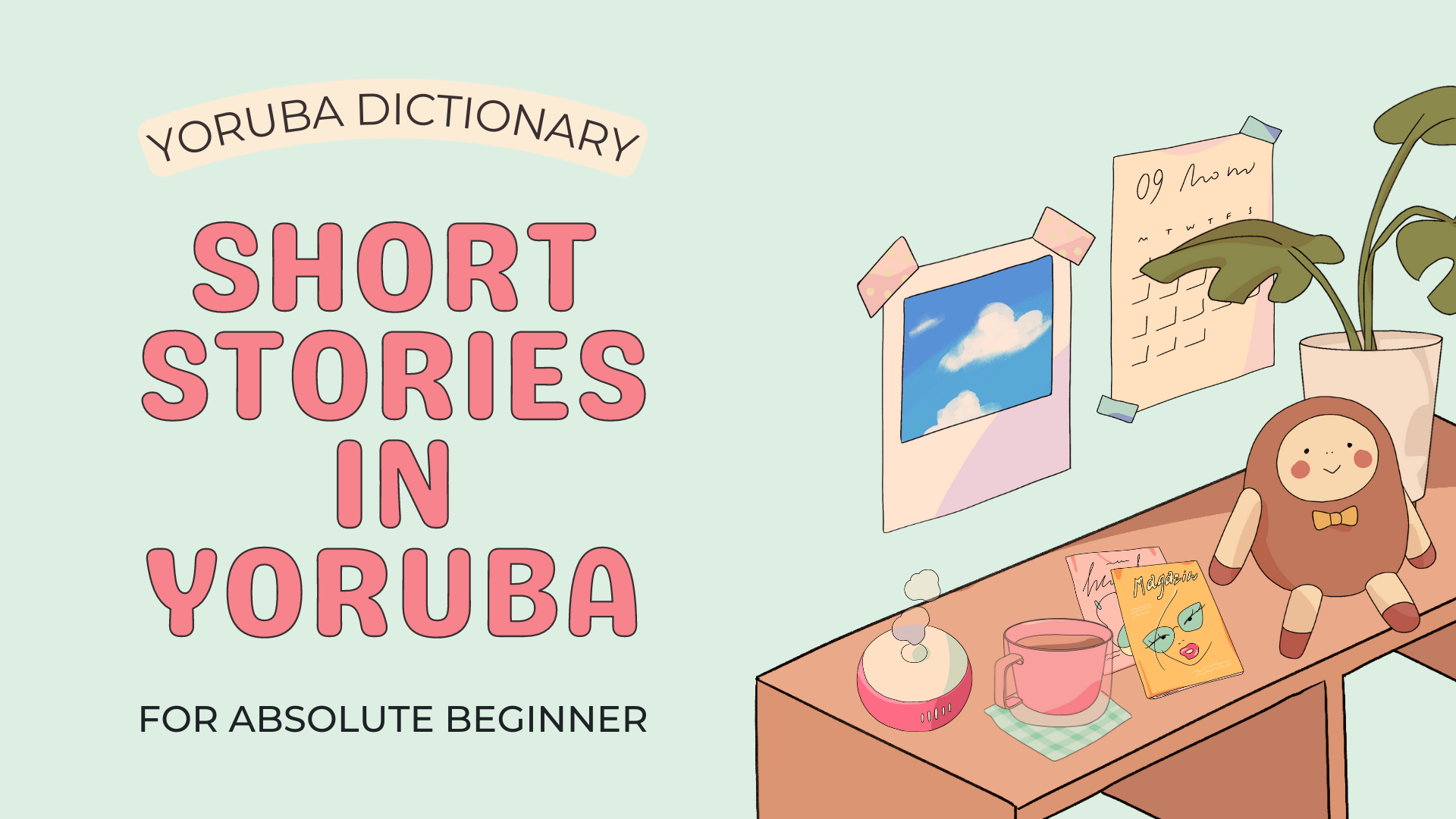Language Learning
Welcome to the Language Learning category, your comprehensive resource hub for embarking on a journey to mastering new languages. Whether you’re a beginner taking your first steps or an advanced learner looking to refine your skills, this category offers a wealth of resources to support your language learning endeavors.
Explore a wide range of languages from around the world, each with its unique set of lessons, exercises, and cultural insights. From foundational grammar to advanced conversation practice, our curated content caters to learners of all proficiency levels and learning styles.
Join our diverse community of language enthusiasts, exchange tips, and share experiences as you navigate the exciting world of language acquisition. Whether you’re learning for travel, work, or personal enrichment, the Language Learning category is your go-to destination for unlocking the power of multilingualism and embracing cultural diversity.
Learn Yoruba for Beginners – Lesson 5 : Pronouns in Yoruba—Possessive pronoun
Introduction In this post, we will be briefly addressing possessive pronouns. Possessive pronouns like mine, yours, his, hers are useful to avoid repetition in your text. It replaces a noun that has a possessive pronoun (determiner). Let’s go. By the way, one thing I noticed after reading the book that is referenced below was that […]
Learn Yoruba for Beginners – Lesson 4 : Pronouns in Yoruba—Object pronouns
Introduction Object pronouns are pronouns that are often used as the direct or indirect object of the verb in the sentence. They are also defined as the pronouns on the receiving end of the action done by the verb. These pronouns are me, you, him, her, us and them. There are others, but only these will […]
Learn Yoruba for Beginners – Lesson 3 : Pronouns in Yoruba – Subject pronoun
Introduction Hello Yoruba language learners! In this blog post, you will be learning, as I am currently, how to express certain pronouns in the Yoruba language. Although not all forms of pronouns will be addressed in this post, i.e. object pronouns, reflexive pronouns etc., the focus is subject pronouns. For those who have left primary […]
Learn Yoruba for Beginners – Lesson 2 : How to greet someone in yoruba
Introduction How you greet someone may vary depending on the time of the day. Although the following is a list of the commonly known greeting phrases, one needs to add or remove certain pronouns depending on the other person listening to you. kúùrọ̀lẹ́ good evening káàárọ̀ good morning káàsán good afternoon […]
Learn Yoruba for Beginners – Lesson 1 : How to say the verb “to be”
Brief explanation if you want to say, someone is at a particular location, use the following template: [person] wà ni [location] The opposite would look like : [person] kò sí ni [location] On the other hand, if the person is going to another location, use: [person] lọ sí [location] Similarly, the opposite take this format : [person] […]
Learn Yoruba for Beginners – Lesson 0 : How to ask “where”?
Pattern Nibo [verb] [subject] Examples Where are we sitting? Níbo a joko ? Where are you? Níbo ni ẹ wà ? Where is your watch? Níbo ni agogo rẹ? Where are you from? Ọmọ ìlú ibo ni ẹ́? Where are we going? Níbo a lọ? Nibo la nlo? Where are you going? Níbo ẹ́ lọ ? Nibo le […]
Learn Yoruba for Beginners – Short Stories : Birthday
Story in Yoruba Orúkọ ọ̀rẹ́ mi ni Tumi ó sì má ń kọrin. N ò lọ ṣe àbẹ̀wò rẹ̀ ni ìrọ̀lẹ́ nítorí òní ni ọjọ́ ìbí rẹ̀. Àmọ́, ṣíwájú èyí, n ó ṣe àkàrà òyìnbó, n ó sì ra àwọn ohun mímu fun. Mo lérò wípé inú rẹ̀ yóò dùn nígbà tí ó bá rí. […]
Learn Yoruba for Beginners – Short Stories : My new job
Story in Yoruba Ọ̀la ni ọjọ́ àkọ́kọ́ mi ni ibi ìṣe mi titun. Mo jí , mo wo kàlẹ́ndà mi pẹ̀lú ìdùnnú mo sì múra láti pàdé àwọn alabasise mi titun . Ní àná , mo jẹ oúnjẹ alẹ́ pẹ̀lú àwọn ọ̀rẹ́ mi ni ibi iṣẹ́ mi àtijọ́ . Bó ti lẹ̀ jẹ́ wípé ó jẹ ohun ibanuje ṣùgbọ́n a ni ọ̀pọ̀lọpọ̀ […]
5 free resources for learning the Yoruba language: Beginners
So why did I start learning Yoruba? Well, could you imagine a language-learning enthusiast, who has NO command over her heritage language? That is sad, tragic, disastrous, calamitous, catastrophic, etc. Over the years, I only had and still have basic knowledge of Yoruba thanks to the argumentative conversation of our parents or our mothers’ guilty […]






